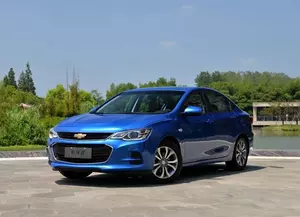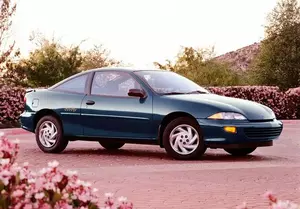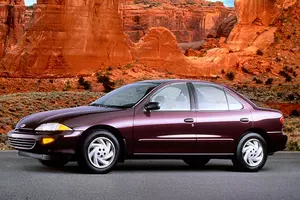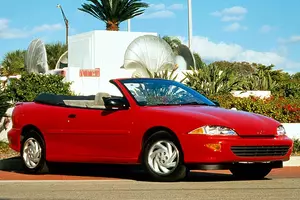
| Vehicle | Precise engine size | Difference from world average | Engine size to consumption ratio | Horsepower from 1 L | Engine size to 100 kg of weight |
|---|---|---|---|---|---|
| 1.5 DVVT |
1.49 L (1485 cc) |
36.7% smaller | 36 cc to 1 mpg | 76 hp from 1 L | 124 cc to 100 kg |
| 1.0 DVVT |
1 L (999 cc) |
57.4% smaller | 21 cc to 1 mpg | 120 hp from 1 L | 83 cc to 100 kg |
| Vehicle | 1.5 DVVT |
|---|---|
| Precise engine size | 1.49 L (1485 cc) |
| Difference from world average | 36.7 smaller |
| Engine size to consumption ratio | 36 cc to 1 mpg |
| Horsepower from 1 L | 76 hp from 1 L |
| Engine size to 100 kg of weight | 124 cc to 100 kg |
| Vehicle | 1.0 DVVT |
| Precise engine size | 1 L (999 cc) |
| Difference from world average | 57.4 smaller |
| Engine size to consumption ratio | 21 cc to 1 mpg |
| Horsepower from 1 L | 120 hp from 1 L |
| Engine size to 100 kg of weight | 83 cc to 100 kg |

| Vehicle | Precise engine size | Difference from world average | Engine size to consumption ratio | Horsepower from 1 L | Engine size to 100 kg of weight |
|---|---|---|---|---|---|
| 2.2 i 16V EcoTec |
2.2 L (2198 cc) |
6.3% smaller | 76 cc to 1 mpg | 64 hp from 1 L | 183 cc to 100 kg |
| 2.2 i |
2.19 L (2190 cc) |
6.6% smaller | - | 53 hp from 1 L | 183 cc to 100 kg |
| 2.4 i 16V Z24 |
2.39 L (2392 cc) |
2% bigger | - | 64 hp from 1 L | 184 cc to 100 kg |
| Vehicle | 2.2 i 16V EcoTec |
|---|---|
| Precise engine size | 2.2 L (2198 cc) |
| Difference from world average | 6.3 smaller |
| Engine size to consumption ratio | 76 cc to 1 mpg |
| Horsepower from 1 L | 64 hp from 1 L |
| Engine size to 100 kg of weight | 183 cc to 100 kg |
| Vehicle | 2.2 i |
| Precise engine size | 2.19 L (2190 cc) |
| Difference from world average | 6.6 smaller |
| Engine size to consumption ratio | - |
| Horsepower from 1 L | 53 hp from 1 L |
| Engine size to 100 kg of weight | 183 cc to 100 kg |
| Vehicle | 2.4 i 16V Z24 |
| Precise engine size | 2.39 L (2392 cc) |
| Difference from world average | 2 bigger |
| Engine size to consumption ratio | - |
| Horsepower from 1 L | 64 hp from 1 L |
| Engine size to 100 kg of weight | 184 cc to 100 kg |

| Vehicle | Precise engine size | Difference from world average | Engine size to consumption ratio | Horsepower from 1 L | Engine size to 100 kg of weight |
|---|---|---|---|---|---|
| 2.2 i 16V EcoTec |
2.2 L (2198 cc) |
6.3% smaller | 76 cc to 1 mpg | 64 hp from 1 L | 183 cc to 100 kg |
| 2.2 i |
2.19 L (2190 cc) |
6.6% smaller | 81 cc to 1 mpg | 56 hp from 1 L | 183 cc to 100 kg |
| 2.4 i 16V |
2.39 L (2392 cc) |
2% bigger | 100 cc to 1 mpg | 64 hp from 1 L | 199 cc to 100 kg |
| Vehicle | 2.2 i 16V EcoTec |
|---|---|
| Precise engine size | 2.2 L (2198 cc) |
| Difference from world average | 6.3 smaller |
| Engine size to consumption ratio | 76 cc to 1 mpg |
| Horsepower from 1 L | 64 hp from 1 L |
| Engine size to 100 kg of weight | 183 cc to 100 kg |
| Vehicle | 2.2 i |
| Precise engine size | 2.19 L (2190 cc) |
| Difference from world average | 6.6 smaller |
| Engine size to consumption ratio | 81 cc to 1 mpg |
| Horsepower from 1 L | 56 hp from 1 L |
| Engine size to 100 kg of weight | 183 cc to 100 kg |
| Vehicle | 2.4 i 16V |
| Precise engine size | 2.39 L (2392 cc) |
| Difference from world average | 2 bigger |
| Engine size to consumption ratio | 100 cc to 1 mpg |
| Horsepower from 1 L | 64 hp from 1 L |
| Engine size to 100 kg of weight | 199 cc to 100 kg |

| Vehicle | Precise engine size | Difference from world average | Engine size to consumption ratio | Horsepower from 1 L | Engine size to 100 kg of weight |
|---|---|---|---|---|---|
| 2.2 i |
2.19 L (2190 cc) |
6.6% smaller | - | 53 hp from 1 L | 168 cc to 100 kg |
| 2.4 i 16V |
2.39 L (2392 cc) |
2% bigger | 89 cc to 1 mpg | 64 hp from 1 L | 184 cc to 100 kg |
| Vehicle | 2.2 i |
|---|---|
| Precise engine size | 2.19 L (2190 cc) |
| Difference from world average | 6.6 smaller |
| Engine size to consumption ratio | - |
| Horsepower from 1 L | 53 hp from 1 L |
| Engine size to 100 kg of weight | 168 cc to 100 kg |
| Vehicle | 2.4 i 16V |
| Precise engine size | 2.39 L (2392 cc) |
| Difference from world average | 2 bigger |
| Engine size to consumption ratio | 89 cc to 1 mpg |
| Horsepower from 1 L | 64 hp from 1 L |
| Engine size to 100 kg of weight | 184 cc to 100 kg |